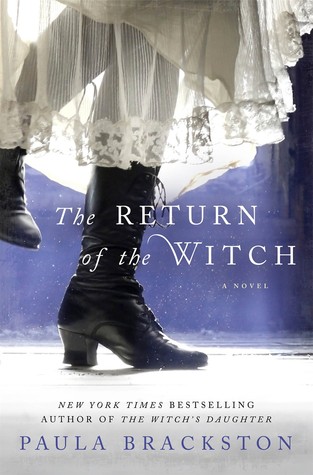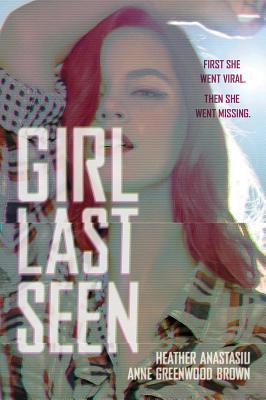Libby Thompson is just fourteen years old when she flees her abusive home with her newborn son, Angel. Now they must build a life for themselves on hard work and low wages, dealing with police who are sometimes helpful-but not always-and a drug dealer who is full of surprises. As Angel gets older, he begins asking questions about his family, and Libby's tenuous peace threatens to crumble. Can a son without a father and a young woman without a past make something beautiful out of a lifetime of secrets? Making Manna explores the depths of betrayal, and the human capacity to love, flourish, and forgive in the face of heartbreaking odds.
Goodreads Summary
1.
Who is your favorite author? Favorite
book?
I
don’t really have favorites. My tastes are diverse and changing. I enjoy
biographies by Doris Kearns Goodwin and political science by Jacob Hacker.
The best
novel I read lately was The Master
Butchers Singing Club by Louise Erdrich. It’s copyright 2002 but the
setting is America post WWI and the characters are timeless. Men We Reaped by Jesmyn Ward was a
highlight of 2015 and I expect it to last a while. It’s the memoir of an
African American woman in low-income America. All of the men important in her
life disappear over a couple of years — shot, drugged, suicide or jailed. But
somehow the police who happily patrol the neighborhood every night with
searchlights can’t manage even to arrest the drunk white driver who kills her
brother.
I’ve also been
delighted to re-read John Green’s The
Fault in Our Stars. The first time was on my daughter’s recommendation. The
second time was voluntary after seeing the movie.
2.
What book are you reading now?
I
just started Viral by Emily Mitchell.
It’s a collection of short stories and I’ve only read a few so I don’t have an
opinion yet. But it came highly recommended and the first story is terrific. It’s
about a small business where the staff are measured, marked, ranked and made
miserable because they aren’t smiling enough.
3.
What inspired you to write Making Manna?
Trigger
warning. This story has a really bad beginning.
Twenty years
ago I was working on a death penalty case. The young man on death row was the
product of an incestuous rape. I wrote those words in his social history —
“product of an incestuous rape.” The phrase was so distasteful that I horrified
even myself. The case came and went but those words stuck with me.
Years
later, I wanted to write something hopeful and uplifting. The world is a mess. I
wanted to say something nice.
So
I went back to that kid. I started there but gave him a different ending. I
took the worst beginning I could imagine and turned it into something positive.
4.
What was your particular process in
terms of outlining, plot and character?
I
had a beginning in mind, from that death penalty case. And I had an end in mind.
But I wasn’t sure how to get there.
I
found that I could always and only see a few chapters in advance. So I would
tell the story that far, then taking that as the baseline, outline what happens
next – with the endpoint in mind. The characters and internal details developed
as they went.
5.
Where is your favorite place to
write?
I
am opportunistic in time and space. I work full time
and I have two kids. I drive them to practices, lessons and activities – and
have an hour or two to write while I wait. When I was lucky, I’d have a whole
half-day at home on a weekend. It mattered that I wasn’t on deadline. If I
needed time to figure something out or went a month without a free minute, that
was okay. I always keep a notebook handy. My creativity is better than my
memory.
6.
What was your favorite part about
writing the book?
This
was really interesting. When I wrote a scene that was happy and light, I was in
a better mood at bedtime. When I wrote a scene that was dark or dreary, I
wasn’t as joyful in real life. Putting myself into the mood to create the scene
expanded beyond the page.
I
suppose it went the other way, too. One weekend I had a lot of time to write
and I was looking forward writing the scene that came next. I expected it to be
happy and triumphant. As it turned out, I was a little blue that weekend. Maybe
I had a cold, something was wrong at work or the kids were annoying. Whatever.
I don’t recall. But I remember being a little down as I started … and it is
quite clear that this fundamentally happy scene has a melancholy undertow. I
always wonder if that undertow was inherent in the material and it would have
been there anyway, or if it reflects my temper over the weekend.
In
any case, I quite like the complexity and I never sought to iron it out.
7.
Why did you decide to write from the
perspective of Libby rather than her son, Angel?
The
book begins from Libby’ point of view. Angel is a baby. Yes, he’s occasionally
cute, but he’s more of a prop than a character. Mostly he’s a logistical
problem that needs diapers and daycare. Starting in Part Two the story moves to
Angel’s point of view, and it ages with him from kindergarten to high school. In
the end the two points of view come together. Now they’re equals.
One smart reader described it as a “coming of age” story of
both the mother and son at the same time. I think that’s exactly right. Libby was
so young when he was born! She has so much to figure out, and so does he. I
think changing the point of view helps bring that development to life.
8.
Libby comes from a tough background
but manages to work hard and support her family. How accurate do you think her
life is compared to a real-life girl in her situation? What research did you do
to keep the novel grounded?
All
of her problems are real. She has a bad boss and not enough money, and she’s
(justifiably) afraid of the police. She solves her problems in ways that are always
credible and based on real world experience. I readily admit, however, that her
success is unlikely. Does one in five people
like her succeed? One in twenty? A hundred? I want to show the hopeful
possibility – while also making it clear that life is hard and the odds are
against her.
Good
luck makes a difference, too. Libby meets Sheila at the outset, and her health
stays good. She gives the good luck back, though, doing favors for others. I
think it’s honest to show that luck makes a difference. That’s not a novelist’s
trick.
9.
Sheila and her husband have a bad
experience with the prison system. Does this aspect of the plot come from your
experience as a lawyer?
Absolutely.
That’s the heart of the story. Typical fiction shows us courtroom dramas with cutting cross examinations and
explosive closing arguments. My personal experience brings you people with
really bad lawyers who accept really bad plea bargains. Justice on TV is about
crime labs and DNA exonerations. The real justice system is about kids who miss
their parents in prison, and cops who book you so they can bill overtime on
your court date.
10.
How else did your career influence
the book?
Can
you tell that I once earned my living as a chef?
More
importantly, my life as a parent influenced the book. It would have been a
different book if I weren’t a dad.
11.
Libby talks about one day getting her
GED and maybe even going to college. What would be her major in college?
Heavens!
I don’t know. I’d have to put her in college, have her meet some people, take
some classes and live some college experiences … then she’d be in a position to
decide.
During
the story, a supporting character decides to go to college. As an author I was struggling
to decide what college she should go to. So instead of thinking, I worked it
out as a story.
First,
I knew she was on a tight budget and could only afford a small number of application
fees. Second, the logic of her situation defined her choices, for example, her
state school. Third, her profile as a candidate determined which schools would admit
her and under what terms. In the end she made a choice that followed naturally
from the options available.
The
point is that instead of deciding where she should go to school from a big fat
Barron’s book, I just followed the situation to its conclusion. It feels real
because it is.
12.
What do you hope readers will take
away from Making Manna?
First,
I want readers to have a good time. Escapism is okay. You
deserve a break today. You bought my book: I owe you a good time.
But I also want readers to reflect on the understory and worry
about the injustice, especially in the justice system. The obvious problem is
bad cops and excessive prison terms. The subtler problem is that people who
need protection don’t get it, and people who’ve been hurt don’t get help. That’s
a different failing of our justice system. I explore those failings and show a
different way out.
13.
Do you plan to write a sequel?
I
hadn’t planned to, but people have asked and now I’m tempted. A plot is
starting to take shape. I have another book in mind, too. It depends, of
course, on how this book is received.
This product or book may have been distributed for review, this in no way affects my opinions or reviews.
COPYRIGHT © 2014 LIVE TO READ




















